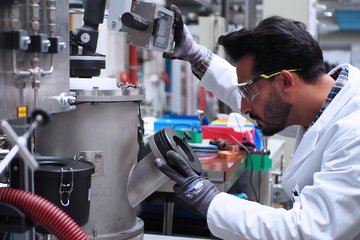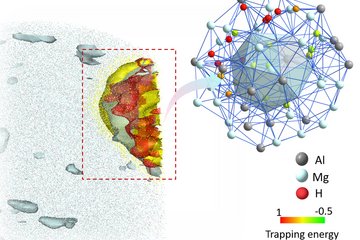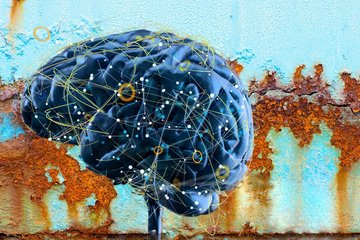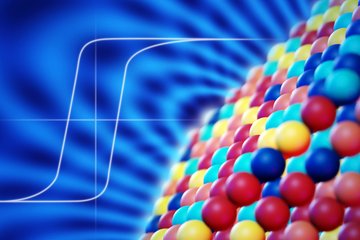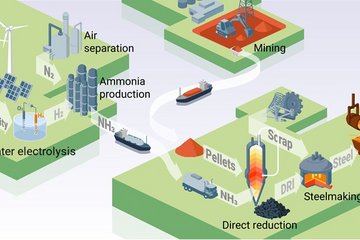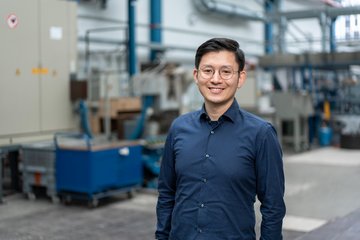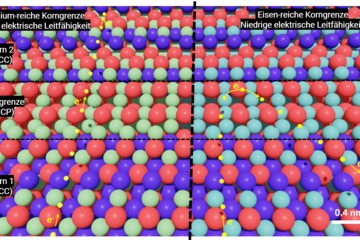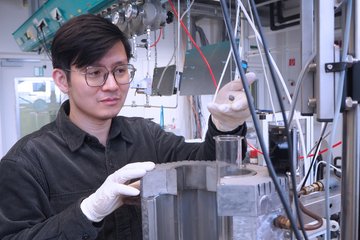Alle Typen
1.
Zeitschriftenartikel
Tether-Length Dependence of Bias in Equilibrium Free-Energy Estimates for Surface-to-Molecule Unbinding Experiments. Langmuir 34 (3), S. 766 - 772 (2018)
2.
Zeitschriftenartikel
Adhesive barnacle peptides exhibit a steric-driven design rule to enhance adhesion between asymmetric surfaces. Colloids and Surfaces B 152, S. 42 - 48 (2017)
3.
Zeitschriftenartikel
Unraveling Hydrophobic Interactions at the Molecular Scale Using Force Spectroscopy and Molecular Dynamics Simulations. ACS Nano 11 (3), S. 2586 - 2597 (2017)
4.
Zeitschriftenartikel
Soft matter interactions at the molecular scale: interaction forces and energies between single hydrophobic model peptides. Physical Chemistry Chemical Physics 19 (6), S. 4216 - 4221 (2017)
5.
Zeitschriftenartikel
How specific halide adsorption varies hydrophobic interactions. Biointerphases 11 (1), 019007 (2016)
6.
Zeitschriftenartikel
Resolving Non-Specific and Specific Adhesive Interactions of Catechols at Solid/Liquid Interfaces at the Molecular Scale. Angewandte Chemie International Edition in English 55, S. 9524 - 9528 (2016)
7.
Zeitschriftenartikel
Resolving Non-Specific and Specific Adhesive Interactions of Catechols at Solid/Liquid Interfaces at the Molecular Scale. Angewandte Chemie 128, S. 9676 - 9680 (2016)
8.
Zeitschriftenartikel
Targeted Tuning of Interactive Forces by Engineering of Molecular Bonds in Series and Parallel Using Peptide-Based Adhesives. Langmuir 31 (40), S. 11051 - 11057 (2015)
9.
Zeitschriftenartikel
Direct and quantitative AFM measurements of the concentration and temperature dependence of the hydrophobic force law at nanoscopic contacts. Journal of Colloid and Interface Science 446, S. 244 - 251 (2015)
10.
Zeitschriftenartikel
Klebstoffentwicklung aus dem molekularen Baukasten - Phänomen der Adhäsion entschlüsselt. Adhäsion, S. 51 - 55 (2015)
11.
Zeitschriftenartikel
Scaling from Single Molecule to Macroscopic Adhesion at Polymer/Metal Interfaces. Langmuir 31 (9), S. 2722 - 2729 (2015)
12.
Zeitschriftenartikel
Elucidating the structure of solid/electrolyte interfaces - Force probe experiments at hydrophilic, hydrophobic and electrified aqueous as well as ionic liquid|electrode interfaces. Bunsenmagazin 2, S. 49 - 55 (2015)
13.
Zeitschriftenartikel
Phenomenon of adhesion decoded [Phänomen der Adhäsion entschlüsselt]. Adhäsion Kleben und Dichten (4), S. 51 - 55 (2015)
14.
Zeitschriftenartikel
Deciphering the scaling of single-molecule interactions using Jarzynski's equality. Nature Communications 5, 5539 (2014)
15.
Zeitschriftenartikel
Using a Surface-Forces-Apparatus to measure force distance profiles across confined ionic liquids. Application Note – Spectrographs (Andor) (2014)
16.
Zeitschriftenartikel
Electrochemical control of specific adhesion between amine functionalized polymers and noble metal electrode interfaces. Materials and Corrosion 65 (4), S. 362 - 369 (2014)
17.
Hochschulschrift - Doktorarbeit
A contribution to understanding interfacial adhesion based on molecular level knowledge. Dissertation, Fakultät für Maschinenbau, Ruhr-Universität Bochum, Bochum, Germany (2016)

